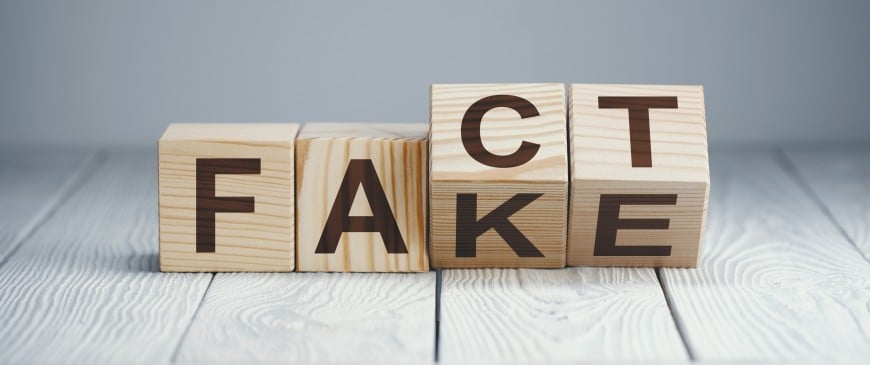
Pakistani internet users find themselves faced with an ‘information disorder’

Facebook and other social networks had blocked at least around 500 pieces of content that spread false information in Pakistan about anti-polio vaccines up until July, according to the Government of Pakistan’s polio eradication programme.
Many of these social media posts wrongly accused the anti-polio vaccines of being expired, fatal, or part of a Western conspiracy to sterilise Muslim children.
The reasons for families to refuse to inoculate their children against the poliovirus are complex. But this does not mean that digital disinformation about the vaccines is harmless.
Disinformation, by definition, is false information deliberately and maliciously spread to cause harm. Around the same time when Pakistani authorities found themselves grappling with the menace of online propaganda against the vaccines, refusals jumped even in urban centres and physical attacks against polio workers spiked. At least over half a million of Pakistani children might be vulnerable to the preventable virus, according to an estimate by a top official. The polio disinformation is likely to have a direct impact on public health and safety.
The propaganda available online about the polio vaccination is just one type of a mind-numbing variety of digital disinformation to which Pakistani internet users are now exposed across platforms. From politics to religious ideology and economic affairs, the past three years have thrown up case after case of imposter news items, propaganda memes, fabricated official notifications, and false-context images and videos in the Pakistani cyberspace.
A majority of such content in Pakistan stokes ethnic and linguistic prejudice, fuels hatred along ideological lines, and polarises social and political groups. Unsuspecting users fooled by these messages have, at times, included government representatives, politicians and investors in Pakistan.
The confusion created among users by the spread of false information and the tactics of powerful lobbies that want to avoid critique from the news media have also led to an erosion of public’s trust in professional news organisations, as journalists on one hand struggle to keep false information out of the news cycle and on the other, are confronted with attacks on their legitimate reporting by state actors and troll armies.
Pakistani internet users, like their global counterparts, find themselves faced with an "information disorder", a term coined by scholars Claire Wardle and Hossein Derakhshan to organise the types of information pollution along the dimensions of falsehood and harm. Yet, there is very little research or documentation at the national or local levels to understand the nature of disinformation in the local context, the extent of its effects on the Pakistani public, and ways to stem the tide.
One potential path out of this bleak labyrinth of disinformation is by helping citizens develop media and information literacy (MIL) skills.
MIL, a composite concept devised by the United Nations Educational, Scientific and Cultural Organisation (UNESCO), encompasses competencies that were earlier boxed under separate labels such as information literacy, news literacy, and digital literacy, to name a few. Taken together, and sprinkled with a dash of optimism, these separate skill-sets form a capability that enables users to identify and confront the information disorder.
MIL skills teach people about ways to access credible information, critically evaluate the meaning of the messages they receive, and create ethical content themselves.
Media and information literate citizens are able to articulate their information needs, search for information in a variety of ways, and retrieve and store the relevant details efficiently. They understand the role and functions of media as social institutions, can assess the motivations behind media content, and evaluate the quality of news in terms of accuracy, fairness, and independence. Finally, MIL citizens learn ethical means of creating and sharing content and, in doing so, realise the efforts required in producing accurate news reports. They are also able to increase their political and civic engagement by making informed decisions based on their news consumption.
When faced with a polio disinformation post online, for example, an MIL citizen would assess the credibility of the source by looking at the history of their posts, check the accuracy of the claims through alternative sources, and question how the content creator might benefit from the post, among other things.
Children and young people need to understand that the quality of information they receive is important as it can influence their decision-making, affect their social lives, and shape their attitudes. Helping them navigate the information disorder requires they have necessary critical thinking skills. Therefore, the formal education system is an ideal setting to integrate MIL skills in Pakistan.
Also read: Editorial
Curricula at various education levels in the country already have some recognition of value-based education, ICT literacy or digital skills. These focus areas can be used by provincial education departments and the federal education ministry to integrate contextualised training components for MIL skills. MIL helps people exercise a healthy scepticism about the digital content they encounter, so it is likely that MIL can dispel prejudice and promote intercultural dialogue.
For journalists in Pakistan, MIL skills can build their capacity to verify information before publishing and create disciplined processes for fact-checking at their news organisations. It can also help them to identify and debunk false information on social media for the benefit of the general public.
There is enough support available at the international level, including UNESCO’s publications and online courses on MIL, to help Pakistani governments, civil society organisations, and media professionals get started. We need to act now.